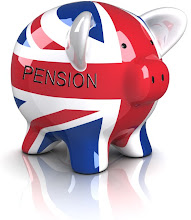As we have entered 2010 and with the introduction of a 50% tax rate we are now only weeks away from the UK moving back to the realms of a high tax country. There has been much discussion about how the full impact can be averted with some individuals making plans to leave the UK altogether.
Those who are now or have in the past been taxable in the UK on the remittance basis have the opportunity to accelerate income through making remittances to the UK before 6 April.
A reminder of the primary new rules:
• The new top income tax rate of 50% applies to those with incomes over £150,000 from 6 April 2010.
• There is a phased elimination of personal allowances reaching zero for those with incomes exceeding £112,950.
• The national insurance employee rate rises and for individuals from 6 April 2011 this will be increased to a 2% levy in place of the current 1% on income above the main table rate. For employers the rate of charge increases to 13.8%.
• The effective marginal rate where UK national insurance, as well as income tax is due will rise in the next year or so from 41% to 52%.
The ability to shelter from the full consequences of this charge is being further diminished. The generous UK tax relief on pension contributions that has been available since April 2006 has been restricted significantly for those with incomes of at least £150,000 per annum. Whilst these rules apply from 6 April 2011, measures were introduced alongside this to discourage increasing contributions beyond regular patterns in place at the last Budget day (22 April 2009). The Pre-Budget Report followed up in December 2009 to bring about further changes that bring taxpayers within these special anti-forestalling rules where income exceeds £130,000.
For these measures (and for the banking sector) the payroll tax has had a significant impact on the thinking of individuals, businesses, and advisors looking again at what can be done to mitigate this higher tax charge.
Amongst possible solutions that may be considered is the advancement of income or profit shares pre-5 April 2010. Where scope exists this might involve designing subsequent deferral mechanisms into Employee Benefit Trusts (EBTs) and Employer Funded Retirement Benefit Plans (EFRBs). For some organisations this may mean maximising share incentives where capital gains (currently at 18%) can be maximised either under approved plans, or by designing incentive restrictions with a prospectively small income tax burden at present, in favour of longer term capital gains tax on growth thereafter.
Those who are now or have in the past been taxable in the UK on the remittance basis have the opportunity to accelerate income through making remittances to the UK before 6 April.
Particularly where that income has already been subject to US tax, the UK savings that can be achieved through remitting before 6 April can be substantial, but the issues involved may be complex and so we urge that this type of year-end planning be addressed as soon as possible.
The ability to plan against the full exposure to the new higher rates has become more difficult but the desire to pursue a capital gains tax rate of 18% in the UK becomes more powerful whilst this increased differential between income tax and capital gains tax rates lasts.
http://www.international-adviser.com/article/mitigating-uk-tax-hike?utm_source=Sign-Up.to&utm_medium=email&utm_campaign=147707-IA+Mar+03+2010
Subscribe to:
Post Comments (Atom)





No comments:
Post a Comment